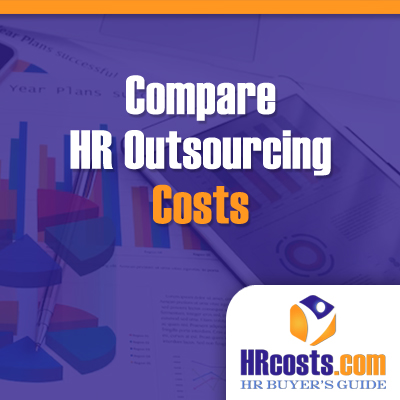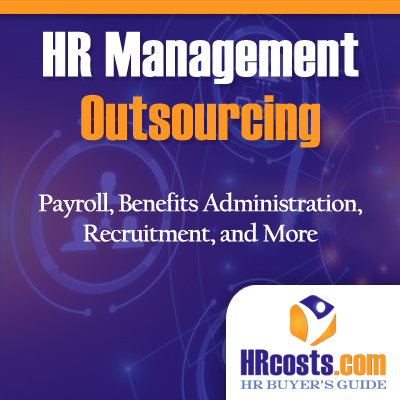
Why Every Business Owner Should Consider Risk Management Services
In the world of business, the only constant is change, and with change comes risk. Whether it’s market fluctuations, cyber threats, or operational hiccups, these risks can jeopardize the very heart of your business if left unaddressed. This is where risk management services step in, offering a strategic shield against the unforeseen and fortifying your business for the future. For business owners navigating the complexities of today’s corporate landscape, understanding the ins and outs of risk management is not just beneficial—it’s imperative. Let’s embark on a journey to uncover why risk management services should be at the top of every business owner’s list.
The Essence of Risk Management
At its core, risk management is the process of identifying, assessing, and prioritizing risks followed by the application of resources to minimize or control the likelihood and impact of unforeseen events. It’s a proactive stance against potential threats that could derail your business objectives. But why should this matter to you, the business owner? Simply put, effective risk management can mean the difference between growth and stagnation, profit and loss, and in some cases, survival and closure.

Why Consider Risk Management Services?
1. Identification of Hidden Risks
Risk management services go beyond the obvious, digging deep into your business operations to unearth risks you might not have considered. From compliance issues to supply chain vulnerabilities, these services offer a comprehensive risk assessment that serves as the first step in protecting your business.
2. Customized Risk Mitigation Strategies
No two businesses are alike, and neither are their risks. Risk management professionals tailor their strategies to your specific needs, ensuring that the solutions implemented are as unique as your business. Whether it’s through insurance products, operational changes, or strategic planning, these services provide targeted approaches to manage risk.
3. Cost Savings and Financial Stability
By identifying and mitigating risks early, risk management services can save you substantial amounts of money in the long run. Avoiding potential lawsuits, fines, or operational disruptions contributes to the financial stability and sustainability of your business.
4. Enhanced Decision-Making
With a clear understanding of the risks facing your business, you can make more informed decisions. Risk management services equip you with the knowledge and insights to weigh the potential impact of your decisions, leading to smarter, safer business practices.
5. Reputation Protection
In today’s digital age, a single negative event can tarnish your business reputation in an instant. Risk management services help protect your brand by preventing such events or mitigating their impact, preserving customer trust and loyalty.
6. Increased Business Resilience
Adaptability and resilience are key markers of a successful business. By preparing for potential risks, your business is better equipped to respond to and recover from adverse events, ensuring longevity and a competitive edge.

Delving Into Risk Management Services
Understanding the value of risk management is one thing, but delving into the services themselves can provide clarity on their role in your business. These services encompass a broad range of strategies and solutions, from comprehensive risk assessments and crisis management plans to insurance optimization and employee safety programs. By partnering with risk management professionals, you gain access to expertise and resources that can safeguard your business against a spectrum of threats.
Implementing Risk Management in Your Business
Adopting risk management practices involves several key steps, beginning with a thorough risk assessment and culminating in the ongoing monitoring and reviewing of risk management strategies. This process ensures that your approach to risk management evolves with your business and the external environment, keeping you one step ahead of potential threats.
In the ever-changing landscape of business, risk is an inevitable companion on the road to success. However, with the right strategies and support, these risks can be managed, controlled, and even turned into opportunities. Risk management services offer a pathway to achieving this, providing business owners with the tools and expertise needed to navigate uncertainty with confidence. In considering these services, you’re not just protecting your business—you’re investing in its future growth, stability, and success. The question isn’t whether you can afford to incorporate risk management into your business strategy, but whether you can afford not to.
Risk Management Outsourcing vs Software: Finding the Best Solution
As we delve deeper into the world of risk management, a pivotal decision that business owners face is choosing between outsourcing risk management services and utilizing risk management software. Each option offers distinct advantages and considerations, and the best choice depends on your business’s specific needs, size, and the complexity of the risks involved. Let’s explore the differences between the two and what you should consider when making this crucial decision.

Risk Management Outsourcing
Outsourcing risk management involves hiring external professionals or firms specializing in identifying, assessing, and mitigating risks tailored to your business. This option brings a human touch to your risk management strategy, with experts who offer personalized advice and solutions.
Advantages:
- Expertise and Experience: Outsourced professionals bring years of experience and specialized knowledge, offering insights that can only be gained through hands-on work across various industries.
- Customized Solutions: They provide tailored strategies that directly address your business’s unique challenges and risk profile.
- Time and Resource Efficiency: Outsourcing allows you and your team to focus on core business operations while experts handle the complexities of risk management.
- Dynamic Adaptability: External risk managers can swiftly adjust strategies in response to emerging threats or changes in your business environment.
Considerations:
- Cost: While outsourcing can save money in the long run by mitigating risks, the upfront cost of hiring experts can be significant.
- Dependency: Relying on external parties requires a level of trust and relinquishes some control over internal processes.
- Cultural Fit: Ensuring that the outsourced firm understands and aligns with your company culture and values is crucial for a successful partnership.

Risk Management Software
Risk management software offers a technology-driven solution, providing tools for businesses to identify, assess, and monitor risks independently. This option emphasizes data and automation, streamlining the risk management process through software platforms.
Advantages:
- Efficiency and Automation: Software can automate routine risk assessment tasks, compile data quickly, and provide instant reports, increasing overall efficiency.
- Scalability: As your business grows, risk management software can easily scale to accommodate new data, users, and evolving risks.
- Cost-Effectiveness: Over time, investing in software may be more cost-effective than outsourcing, especially for businesses with the capacity to manage risk internally.
- Data Security: Many risk management software platforms offer robust data security features, protecting sensitive information from cyber threats.
Considerations:
- Learning Curve: Implementing new software requires training for your team, which can be time-consuming and resource-intensive.
- Customization Limits: While some software offers customization, it may not fully address the unique nuances of your business’s risk landscape as effectively as a personalized service.
- Ongoing Maintenance: Software solutions require regular updates and maintenance to stay effective, which can incur additional costs and oversight.
Making the Decision: Outsourcing vs. Software
When choosing between outsourcing risk management services and utilizing software, consider the following factors:
- Business Size and Complexity: Smaller businesses or those with straightforward risk profiles may find that software meets their needs efficiently, while larger enterprises or those in highly regulated industries might benefit more from the customized approach of outsourcing.
- Budget Constraints: Evaluate your budgetary flexibility. Outsourcing offers expertise at a higher initial cost, whereas software may present a more budget-friendly solution in the long run.
- Internal Capabilities: Assess your team’s capacity to manage risk. Do you have the resources to implement and maintain a software solution, or would outsourcing free your team to focus on their primary roles?
- Strategic Fit: Ultimately, the choice should align with your overall business strategy and goals. Which option better supports your long-term vision and operational needs?
In navigating the decision between outsourcing risk management services and implementing software, the right choice varies based on each business’s unique situation. By thoroughly assessing your business’s specific needs, capabilities, and risk profile, you can choose a path that not only mitigates risks but also aligns with your strategic objectives, ensuring sustained growth and resilience in the face of uncertainties. Remember, the goal of risk management, whether through outsourcing or software, is to empower your business to face challenges with confidence and secure a prosperous future.
